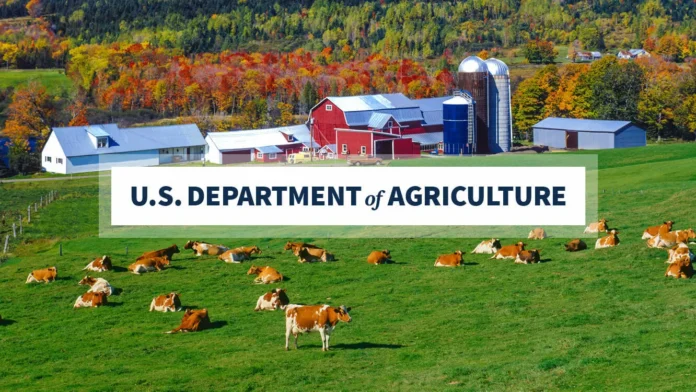The U.S. Department of Agriculture (USDA) has taken a significant step towards promoting fairness and transparency in the livestock industry with the finalization of the Inclusive Competition and Market Integrity rule under the Packers and Stockyards Act. This much-awaited rule will come into effect in 60 days after its publication in the Federal Register, marking a crucial milestone in the USDA’s efforts to ensure a level playing field for all participants in the agricultural market.
The Packers and Stockyards Act, enacted in 1921, aims to protect farmers and ranchers from unfair, deceptive, and anti-competitive practices in the meat and poultry industries. However, the act has not been updated since 1958, and the industry has undergone significant changes since then. With the finalization of this rule, the USDA is addressing the modern challenges faced by livestock producers and bringing the act up to date with the current market dynamics.
One of the key provisions of the Inclusive Competition and Market Integrity rule is the prohibition of unfair practices by meatpackers, processors, and poultry dealers. These practices include retaliatory actions against farmers who speak out against unfair treatment, false or misleading labeling, and giving undue preference to certain producers over others. By prohibiting these practices, the rule aims to promote fair competition and protect the rights of farmers and ranchers.
The rule also includes provisions to promote transparency in the pricing of livestock. Currently, many producers feel that they are not receiving fair prices for their animals, and the lack of transparency in the pricing process only adds to their frustration. The USDA’s new rule requires meatpackers, processors, and poultry dealers to maintain records of the prices paid for livestock, making the pricing process more transparent and accountable. This will enable producers to make informed decisions and negotiate fair prices for their animals.
The USDA has also addressed concerns regarding the undue influence of large meatpackers in the market by strengthening the criteria for determining whether a company has engaged in unfair practices. Under the new rule, the USDA will consider factors such as the company’s size, market share, and financial resources when determining if their actions have had a negative impact on competition. This will help level the playing field for smaller producers and prevent monopolistic practices in the industry.
The final rule also includes measures to promote greater access to markets for small and mid-sized producers. The USDA will establish a new office within the Packers and Stockyards Program to provide technical assistance and training to these producers, helping them navigate the complexities of the market and compete on equal footing with larger operations. This will not only benefit the producers but also contribute to a more diverse and resilient agricultural sector.
The USDA has consulted with various stakeholders, including producers, processors, and consumer groups, throughout the rulemaking process to ensure that the final rule addresses their concerns and reflects their input. The department has also considered over 60,000 public comments, demonstrating its commitment to transparency and inclusivity. The final rule is a result of this collaborative effort and is a testament to the USDA’s dedication to promoting a fair and competitive marketplace for all.
The Inclusive Competition and Market Integrity rule has been welcomed by various industry organizations, with many hailing it as a significant step towards a more transparent and competitive market. The National Farmers Union stated that the rule will “help level the playing field for farmers and ranchers, promote fair competition, and provide much-needed transparency.” The National Cattlemen’s Beef Association also commended the USDA for addressing the concerns of producers and ensuring a “more just marketplace for all cattle producers.”
In conclusion, the finalization of the Inclusive Competition and Market Integrity rule is a significant achievement for the USDA and a win for farmers and ranchers across the country. By promoting fair competition, transparency, and market access, the rule will create a more equitable and resilient agricultural sector. The USDA has shown its commitment to serving the best interests of all stakeholders and has set a positive example for other government agencies to follow. With this rule in place, we can look forward to a more inclusive and competitive future for the livestock industry.

